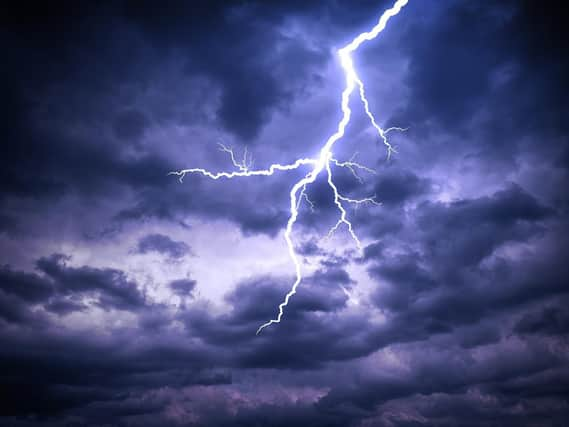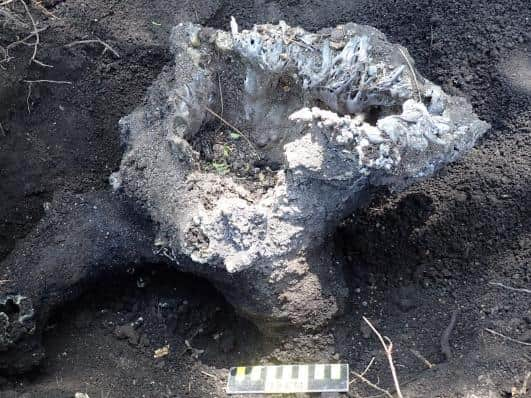Life on earth could have been created by bolts of lightning striking the planet, scientists at the University of Leeds find


New discoveries about the origins of life on earth have been made at the University of Leeds, finding that lightning which struck the planet resulted in minerals which were essential to the creation of life.
Meteorites landing on the earth four billion years ago have long been known to have created the minerals which led to the planet's earliest signs of life.
Advertisement
Hide AdAdvertisement
Hide AdBut now Leeds researchers have found that bolts of lightning were also responsible for the creation of such minerals, finding that life could also manifest on other planets similar to earth if the atmospheric conditions are just right.


Benjamin Hess, from the School of Earth and Environment, said: “This means the formation of life on other Earth-like planets remains possible long after meteorite impacts have become rare.”
The findings come after Dr Hess and his colleagues studied an exceptionally large and pristine sample of fulgurite - a rock created when lightning strikes the ground - which was formed when lightning struck a property in Illinois, USA, in 2016, and donated to the geology department at a nearby college.
The Leeds researchers found a large amount of a highly unusual phosphorous mineral called schreibersite in the sample, which is essential to life and and plays a key role in all life processes from movement to growth and reproduction.
Advertisement
Hide AdAdvertisement
Hide AdThe phosphorous present on earth’s surface billions of years ago was contained in minerals that cannot dissolve in water, but schreibersite can.
Mr Hess, now a PhD student at Yale University, Connecticut, said: “Many have suggested that life on earth originated in shallow surface waters, following Darwin's famous "warm little pond" concept.
“Most models for how life may have formed on earth's surface invoke meteorites which carry small amounts of schreibersite. Our work finds a relatively large amount of schreibersite in the studied fulgurite.
“Lightning strikes Earth frequently, implying that the phosphorus needed for the origin of life on Earth's surface does not rely solely on meteorite hits.
Advertisement
Hide AdAdvertisement
Hide Ad“Perhaps more importantly, this also means that the formation of life on other Earth-like planets remains possible long after meteorite impacts have become rare.”
The team estimate that phosphorus minerals made by lightning strikes surpassed those from meteorites when the earth was around 3.5 billion years old, which is about the age of the earliest known micro-fossils, making lightning strikes significant in the emergence of life on the planet.
Sandra Piazolo, Professor of Structural Geology and Tectonics at the University of Leeds, said the research "opens the door to several future avenues of investigation".
“All these studies will help up to increase our understanding of the importance of fulgurite in changing the chemical environment of earth through time," she said.